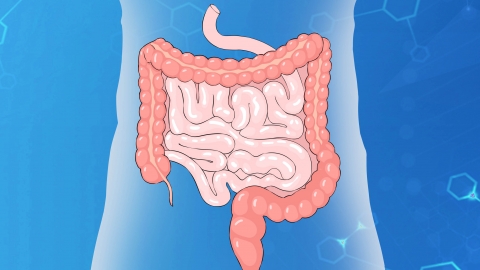What to do about intestinal obstruction due to rectal cancer
In general, intestinal obstruction caused by colorectal cancer may result from improper diet, disordered bowel habits, direct tumor blockage of the intestinal lumen, intestinal adhesions, or gastrointestinal infections. It is recommended to seek medical attention promptly, identify the underlying cause, and then improve the condition under a doctor's guidance through conservative management, medications, and other treatments. The specific analysis is as follows:

1. Improper dietary structure: Consuming excessive hard or sticky foods can lead to accumulation at the site of tumor-induced narrowing, triggering intestinal obstruction. Immediately switch to a liquid diet such as rice soup or vegetable broth, avoid coarse grains and sticky foods, and consider short-term fasting if necessary, with nutritional support provided intravenously.
2. Disordered bowel habits: Long-term suppression of the urge to defecate can cause fecal impaction, worsening intestinal blockage. Follow medical advice to use lactulose oral solution to soften stools, develop a habit of regular bowel movements, avoid excessive straining during defecation, and use glycerin suppositories when necessary to assist bowel movement.
3. Direct tumor obstruction of the intestinal lumen: As the tumor grows, it occupies space within the intestine, preventing food residue from passing through. Emergency colostomy may be required to temporarily divert the bowel passage and relieve the obstruction. Subsequent treatment should include radical tumor surgery to remove the affected tissue based on the patient’s overall condition.
4. Intestinal adhesions: Adhesions caused by previous rectal cancer surgery or inflammation can narrow the intestinal lumen and trigger obstruction. During the acute phase, fasting and water restriction are required. Follow medical instructions to use antibiotics such as ceftriaxone sodium injection, metronidazole injection, and levofloxacin injection to prevent infection. Surgical adhesion lysis may be necessary in severe cases to release the adhesions.
5. Intestinal infection: Infection-induced bowel wall edema and thickening can exacerbate luminal narrowing and lead to obstruction. Follow medical advice to take antibiotics such as cefixime dispersible tablets, amoxicillin-clavulanate potassium tablets, or azithromycin capsules to control infection, while receiving intravenous electrolyte solutions to maintain fluid balance.
In daily life, strictly adhere to a low-fat, high-protein, easily digestible diet with small, frequent meals. Avoid strenuous exercise; light walking after meals may help digestion. Regular colonoscopies and tumor marker tests should be performed to closely monitor disease progression and adjust treatment plans promptly.





